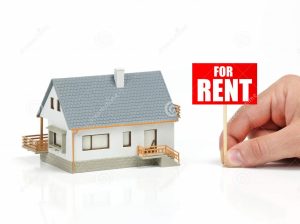

Investing in a Rental property can be profitable, but it not without risks.
Whether properties are occupied or not, owners are still responsible for paying the mortgage, property taxes and any other expense associated with owning the property, such as heat, hydro, etc.
Advantages of owning a Rental Property:
- Regular monthly income. Rent collected minus your expenses, means a steady, predictable cash flow.
- Appreciation. While you cannot guarantee the price of your property will increase, historically, real estate has appreciated over time.
- Tax deduction. You can deduct certain related expenses from your gross rental income. These include mortgage interest, property taxes, insurance, maintenance costs, property management fees and utility bills - unless your tenant pays utilities. If your expenses end up exceeding your rental income in a given year, you may be able to deduct this loss from any other sources of income you have, provided you have a reasonable expectation of profit.
Disadvantages of owning a Rental Property:
- Responsibilities of being a landlord. You will have to deal with repairs, sometimes on an emergency basis, collecting rent and maybe difficult tenants. You can hire a property manager but this could be costly and will cut into your monthly income.
- Selling is not always easy. Depending on market conditions, it can be tricky to sell a rental property and you will need to factor in real estate costs.
- Routing and unexpected expenses. It can be expensive owing a rental property. Aside from your down payment and mortgage, what you spend on utilities, maintenance, repairs and upgrades really add up. Budget 2% of the purchase price of your property for maintenance and repairs. I would recommend a rainy day fund to cover operating costs if your tenant leaves and it takes a while to get new ones.
- Rental income. Your net rental income is included in your taxable income for the year. This extra income might make you subject to a higher marginal tax rate, which would have you paying more tax on every additional dollar earned. The Rental income could also reduce your entitlement to government benefits such as Old Age Security.
- Market conditions can change. The market is suddenly flooded with a supply of long-term rental properties, turning a landlord’s market into a renter’s market and putting downward pressure on rental rates.

